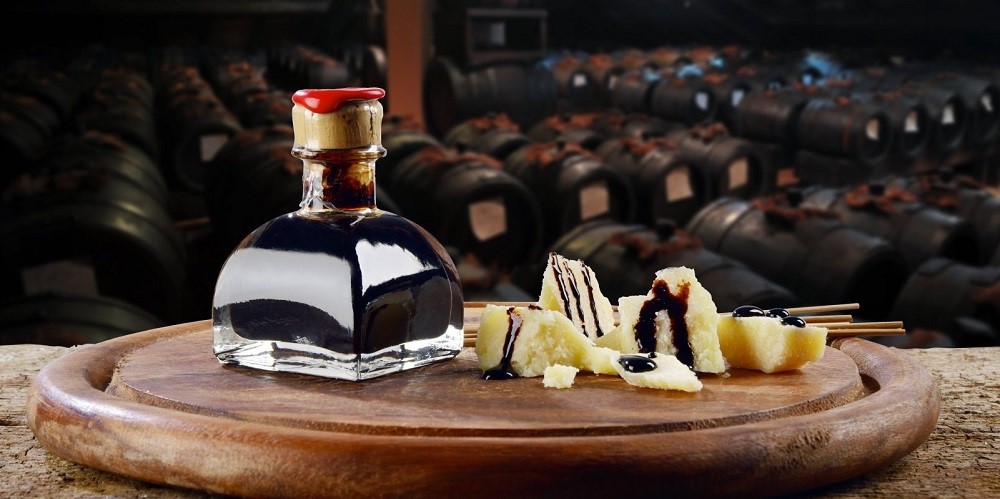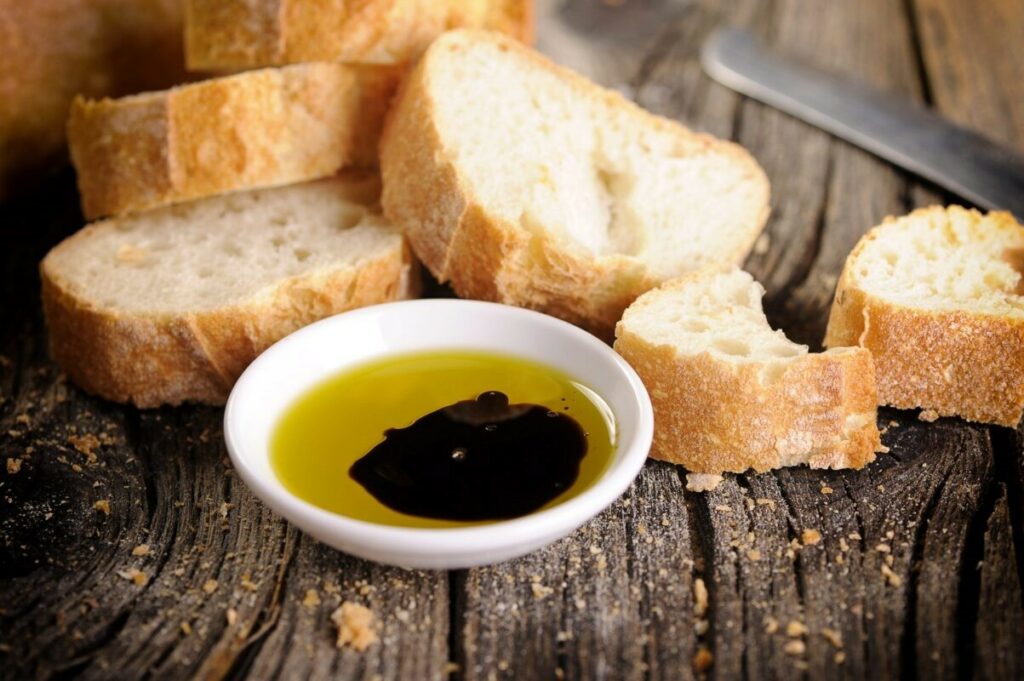Can You Freeze Balsamic Vinegar?
Balsamic vinegar is available on the market in many types. Yes, there are different condiments of balsamic vinegar that you will find. But when it comes to the price, all of them are expensive, especially the aged ones.
You must be buying balsamic vinegar for your kitchen needs. So, you know, a small amount of this vinegar goes a long way. You can also store the vinegar for years in your kitchen cupboard. But what if you want to store it for longer?

Balsamic vinegar is not an everyday ingredient in the kitchen, and whenever you use it, you use it in small quantities. Also, it comes expensive, so you would definitely not want a single drop to go to waste. So what can you do to keep the vinegar for longer? Can you freeze balsamic vinegar?
Yes, vinegar definitely can be frozen. However, it is not really necessary to freeze balsamic vinegars because of their acidic content, but freezing will increase the shelf life of the vinegar indefinitely. It is safe to be frozen. Read on to know more!
How To Freeze Balsamic Vinegar?
Balsamic vinegar or any other type of vinegar has the same technique for freezing. You need to ensure that you do not let the vinegar come into air contact as this will ruin it. Freezing balsamic vinegar is easy. Check out the steps here.

- Consider using small containers to freeze your balsamic vinegar in portions. This is because small containers will keep out maximum air as possible. And on the other hand, large containers are air-filled, so you should definitely avoid them.
- Clean the small containers properly before storing the vinegar and make sure that they have tightly sealed lids. Transfer amounts of the balsamic vinegar into these containers carefully. You can portion them out as you prefer.
- Do not fill the containers to the brim; leave a headspace of around 1/2-1 inch. This is due to the reason that vinegar expands while freezing and leaving a headspace will allow enough room for expansion.
- Once you have filled the containers, seal them tightly. Here you need to take care of the sealing as this will ensure the freezing capabilities of the vinegar. A slight gap between the lid and the container might lead to freezer burns. So be careful while doing so.
- The next and final step would be to label and date the containers so that you know how long the vinegar has been in the freezer. Stack the containers in and your balsamic vinegar is ready to be frozen.
Tips To Freeze Balsamic Vinegar
Here are some tips that you need to know to freeze balsamic vinegar which will give you the best results. Check them out before you freeze balsamic vinegar.

- If you intend to freeze the balsamic vinegar, do not let it sit at room temperature for long hours. Balsamic vinegar or any other vinegar when exposed to air oxidizes which ruins it. Therefore, do not let the vinegar come into even minimal air contact.
- It is best if you freeze balsamic vinegar in portions and for that purpose, you can also use ice cube trays. Vinegar evaporates during freezing and thawing, which might reduce the flavor intensity to some extent. Therefore, freezing in portions is recommended.
- Stack the balsamic vinegar containers at the center of the freezer and avoid the edges. This will allow better freezing of the vinegar and at the same reduce the chances of the vinegar to temperature fluctuations at the edges of the freezer.
How Can You Defrost Freezing Vinegar?
Defrosting balsamic vinegar is a task because it needs to be done very carefully. Otherwise, you might end up ruining the frozen vinegar. Vinegar tends to turn hot very soon; therefore you must defrost the vinegar slowly and gradually.
Defrosting straight from the freezer leads to temperature changes and during this process the vinegar might turn hot and boil off. This will lead to unnecessary losses. Therefore, it is suggested that you defrost vinegar only in the required amounts.
Take out the desired quantities of balsamic vinegar from the freezer and let the frozen vinegar thaw in the refrigerator overnight. Once they have totally defrosted you can use the vinegar as you wish.
How To Store Balsamic Vinegar?
You can store balsamic vinegar at normal room temperature for quite some time after opening. However, you need to ensure some steps to keep your vinegar nice. Store the bottle of vinegar in a cool and dark place, possibly inside a cabinet or pantry.
Balsamic vinegar is acidic and so will not degrade when exposed to oxygen. But will surely show changes to light and heat exposure. Therefore, it is a must to store the vinegar away from these. To stop dust particles from coming into contact with the vinegar, fasten the cap tightly.

While balsamic vinegar can be frozen, and stored at normal room temperature, storing the vinegar in the refrigerator is not a good idea. Placing the balsamic vinegar in the refrigerator will result in condensation forming on the inside of the bottle, which will compromise the taste.
Does The Vinegar Freeze Well?
Balsamic vinegar is basically liquid; therefore the vinegar freezes well, but not very well. During the processes of freezing and defrosting, vinegar evaporates, which might alter the flavor and texture sometimes. However, you will not notice any significant differences before and after freezing.
What Is The Vinegar Shelf Life?
Vinegar shelf life is quite long. As vinegar is acidic in nature, it has a high resistance to bacterial growth. Bacterial growth is a reason for reduced shelf life in food items. But that does not happen with vinegars. Therefore, balsamic vinegar has a shelf life of 3-4 years when stored properly.
On the other hand, poor storage will lead to a reduced shelf life of the balsamic vinegar due to contamination. Therefore, it is essential that you follow proper storage instructions to keep your balsamic vinegar stored for years effectively.
How Long Does Vinegar Freezes?
Balsamic vinegar can last indefinitely in the freezer. Yes, you read that right! There is no time limit to frozen balsamic vinegar. Frozen vinegar lasts for years. This is because balsamic vinegar has the same properties as water and therefore vinegar freezes safely.

Another main reason for the indefinite freezing time of vinegar is its acidic nature. It is also due to this acidic trait that balsamic vinegar does not show bacterial growth while temperature changes in the process of freezing.
What Is Traditional Balsamic Vinegar?
The names balsamic vinegar and traditional balsamic vinegar sound similar, so you might guess that they are the same thing. But no, that is not the case here. Both of them are different from one another. Traditional balsamic vinegar is made in the Emilia Romagna and Modena areas of Italy.

The vinegar is made from cooked white grape must and is aged for about 12 years before it becomes traditional balsamic vinegar. This vinegar is also more expensive than normal balsamic vinegar. Besides these, there are also other condiments of balsamic vinegar.
What Is Red Wine Vinegar?
Red wine vinegar is made from fermented red wine. The process is quite simple, ferment the wine, strain it, and it turns into vinegar. This vinegar is used in a lot of household recipes and is said to come with several health benefits.
Red vinegar’s primary composition is acetic acid, which might help control blood sugar levels. The antioxidants present in red wine vinegar might be beneficial in treating burns, bacterial infections, and other issues with the skin. There is more, the vinegar might also aid weight loss to some extent. But yes, one thing you need to make sure that you do not overuse vinegar.

Summing it up, that was all about freezing balsamic vinegar. There are also other types of vinegars, apart from the ones discussed here that can be frozen. Some examples can be white vinegar, apple cider vinegar, and more.

